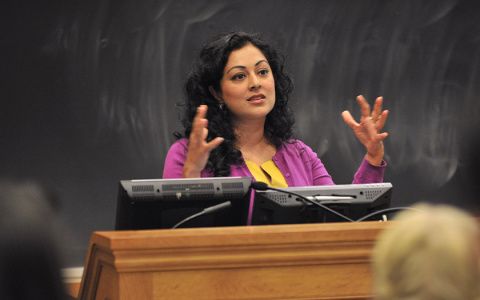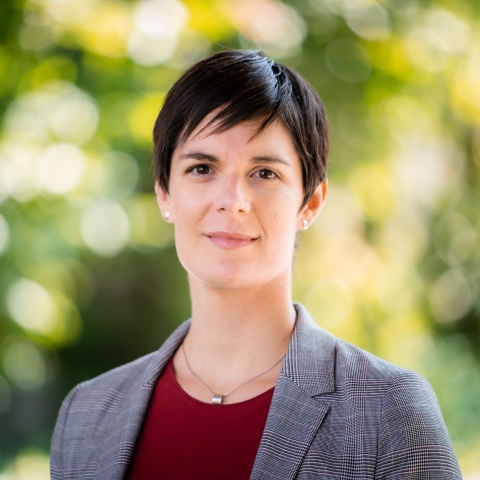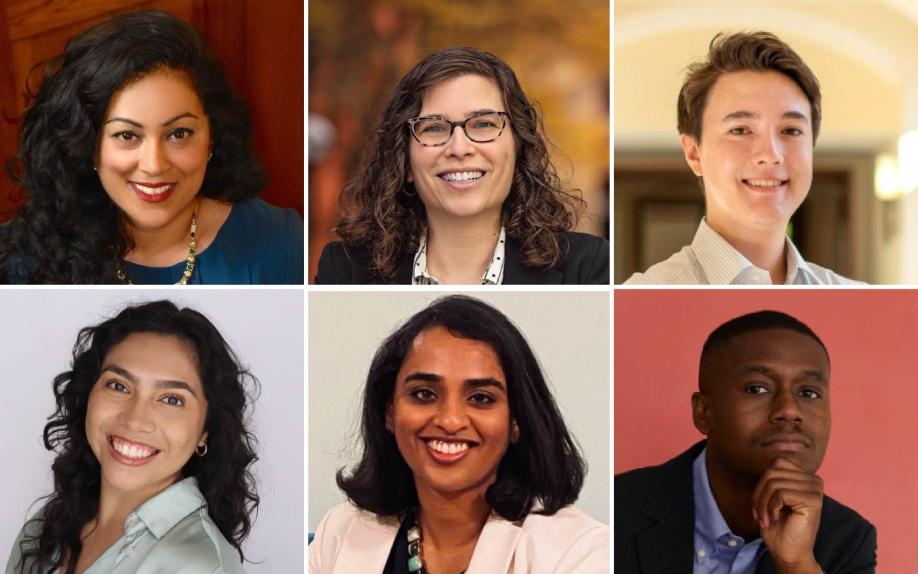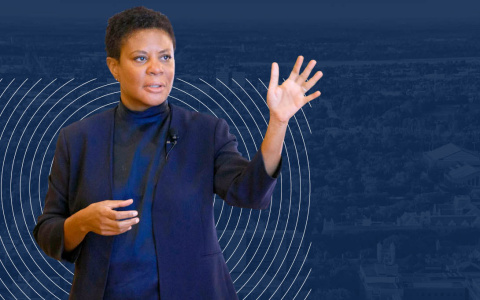Innovation
Promoting equity in innovation for a more dynamic and just future
Centering equity in the innovation process requires moving away from traditional policy- and agenda-setting institutions, such as government, industry, universities, and foundations, to include more community expertise in the entire process and model. STPP promotes broadening our understanding of expertise, developing new ways to assess technological design, and establishing new institutions and public policy to serve the public interest that innovation will truly work for the good of everyone.
Historically, the US government has focused on policies designed to stimulate innovation in the hope that these policies would generate markets, produce macroeconomic growth, and provide access to new technologies…But innovation isn’t benefiting everyone, and sometimes it amplifies inequality. Better public policies, however, can help to address these problems and ensure a more equitable and just twenty-first century.

Shobita Parthasarathy
Denia Djokić
Todd Allen, Chihiro Kikuchi Collegiate Professor and Glenn F. and Gladys H. Knoll Department Chair of Nuclear Engineering and Radiological Sciences; Director of the Michigan Memorial Phoenix Project; Director of the Fastest Path to Zero Initiative
Jesse Austin-Breneman, Assistant Professor of Mechanical Engineering
Shalanda Baker, Vice Provost for Sustainability and Climate Action
Tawanna Dillahunt, Associate Professor of Information
Denia Djokić, Assistant Research Scientist, Nuclear Engineering and Radiological Sciences
Monica Dus, Director, Office of National Labs, Office of the Vice President for Research; Associate Professor, Department of Molecular, Cellular, and Developmental Biology
Ben Green, Assistant Professor of Information; Assistant Professor of Public Policy (by courtesy)
Robert C Hampshire, Associate Professor of Public Policy; Research Associate Professor at the U-M Transportation Research Institute's (UMTRI) and Michigan Institute for Data Science (MIDAS)
Yousif Hassan, Assistant Professor of Public Policy
James Holly Jr., Assistant Professor of Mechanical Engineering
Muzammil Hussain, Assistant Professor of Communication and Media and Associate Director, Middle East and North African Studies, International Institute
Michael J Imperiale, Arthur F Thurnau Professor Emeritus and Professor Emeritus of Microbiology and Immunology, Medical School
Mike Liemohn, Professor, Climate and Space Sciences and Engineering
Silvia Lindtner, Associate Professor of Information; Associate Professor of Art and Design; Assistant Professor of Digital Studies Institute
Timothy McKay, Arthur F. Thurnau Professor of Physics, Astronomy, and Education; Associate Dean for Undergraduate Education, College of Literature, Science, and the Arts
Nigel Melville, Associate Professor of Technology and Operations
Jason Owen-Smith, Professor of Sociology; Professor of Organizational Studies; Associate Vice President for Research - Institutional Capabilities and Research Intelligence; Research Professor, Survey Research Center; and Professor of Public Policy
Shobita Parthasarathy, Professor of Public Policy; Director, Science, Technology, and Public Policy program; Professor of Women's and Gender Studies (by courtesy)
Anne Petersen, Adjunct Research Professor, Integrative Systems and Design/Survey Research Center
Jodyn Platt, Associate Professor of Learning Health Sciences; Associate Professor of Health Management and Policy
Nicholson Price, Professor of Law
Joy Rohde, Associate Professor of Public Policy; Associate Professor of History (by courtesy)
Misha Teplitskiy, Assistant Professor of Information
Kentaro Toyama, W.K. Kellogg Associate Professor of Community Information
More Featured Events
Other Events on Innovation and Tech of the Future
- Are smart cities smart enough?
- The politics of inclusive innovation in international development: Menstrual hygiene management and sanitary pads in India
- Cultivating socially responsible engineers: The role of universities and public policy
- Science for the people: Innovation policy in the United States
- Lisa D. Cook on diversity and innovation
- Using algorithms in government: Opportunities, challenges, and paths forward
- Opportunities and challenges of autonomous vehicles: Role of governments?
- Chris Calabrese: Show your face? The pros and cons of facial recognition technology for our civil liberties
- Automating Inequality: How High-Tech Tools Profile, Police and Punish the Poor
Featured Innovation News and Updates
A lot of the research I've done along the way has made me quite critical and skeptical of innovation systems, by which I mean the institutions, policies, processes, and norms that shape how we think innovation must be done. At the heart of this is the assumption that innovation must center economic benefit and impact, and that if we do that, we will produce societal benefit along the way – that is, either the economic impact will produce the social benefit, or the technologies themselves will do so. Through different projects, I've learned that it's a far more complicated story.
Shobita Parthasarathy, on the intersection of technology, feminism, colonialism, and social justice.
- Shobita Parthasarathy selected as an Institute for Advanced Study Scholar
- A tale of two perspectives on innovation and global equity
- Parthasarathy calls for reimagining the innovation process
- STPP receives Carbon Neutrality Acceleration grant, examining nuclear power
- Parthasarathy calls for equitable innovation in science and technology
- International Day of Women and Girls in Science: Impacting society through technology and innovation research
- Parthasarathy testifies about equity in innovation before key Congressional subcommittee
- Parthasarathy’s report shows innovation policy ignores marginalized communities
Undergraduate
- DIGITAL 158/258: Science, Technology, and Racial Capitalism
- DIGITAL 357/FVTM 366: History of the Internet
- DIGITAL 359: Gendered and Racialized Bodies and Technologies
- DIGITAL 366: Deception, Manipulation, and Privacy in the Digital Age
- DIGITAL 366: How Do Algorithms See?
- DIGITAL/AMCULT/SI/STS 410: Ethics and Information Technology
- DIGITAL/ARCH/UT 411: Becoming Digital
- DIGITAL/ENGLISH 420: Critical AI
- ORGSTUDY 402/SOC 495: Data, Work, and Organizations
- ORGSTUDY 206: Technological Innovation
- ORGSTUDY 450: Technological Innovation
- PUBPOL/STS 240: Introduction to Technology Policy (SS)
- SI/STS 110, ALA 119: Introduction to Information Studies
- SI 310: Introduction to Information Ethics
- SI 326: Understanding AI: Concepts, Ethics, and Societal Impacts
- SI 432: Information Technology and Global Society
- SI 434: Algorithms and Society
- STRATEGY/BA 445: Base of the Pyramid: Business Innovation and Social Impact
- STS/HISTORY 285, RCSSCI 275: Science, Technology, Medicine, and Society
- STS 299: Technology and Social Change
Graduate
- AEROSP/SPACE 581: Space Policy and Management
- HBHEQ 715: Ethical, Legal, and Social Issues in Genomics and Health
- NERS 532: Nuclear Safeguards
- SI 510: information Ethics
- SI 591: Humanitarian Innovation
- STRATEGY/TO 630: New Age of Innovation
- URP 489/589: Tech Clusters and Smart Cities: Planning, Economic Development, and Social Consequences of Urban Innovation
- URP 595: Public Private Partnerships - Financing Equitable Development






